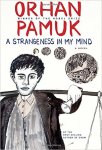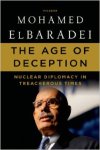Suspect X and Miniaturist Art @ BYOB Party in November 2017 (Part 2)
 There was a crime thriller edge to the BYOB Party this time. Kshitija spoke about a unique crime thriller called The Devotion of Suspect X by Keigo Higashino. The reason for its uniqueness is that the book is no conventional whodunit and the thrill lies in the power play of human psychology. The storyline is uncomplicated and even though the book is a translation from Japanese, Kshitija enjoyed the writing style. Here’s an interview with the translator Alexander O’Smith if you want to understand more about the how this novel was translated.
There was a crime thriller edge to the BYOB Party this time. Kshitija spoke about a unique crime thriller called The Devotion of Suspect X by Keigo Higashino. The reason for its uniqueness is that the book is no conventional whodunit and the thrill lies in the power play of human psychology. The storyline is uncomplicated and even though the book is a translation from Japanese, Kshitija enjoyed the writing style. Here’s an interview with the translator Alexander O’Smith if you want to understand more about the how this novel was translated.
The story throws light on the little details of day-to-day life in Japan. Yasuko Hanoaka is a divorced single mother who lives with her daughter. Her abusive ex-husband shows up one day and ends up being killed. Detective Kusanagi suspects Yasuko but needs Professor Galileo’s help to find the culprit. The ending is wowing and Kshitija spoke in breathless excitement about the cleverness of the title. This is one psychological crime thriller you do not want to miss out on.
 Aditi also got her hands on a unique literary historical crime thriller by Orhan Pamuk called My Name is Red. This book is a translation as well. Pamuk meshes love, crime and art with sixteenth-century Turkey as the backdrop. One of the miniature artists commissioned by the Sultan to create a book of his glories has disappeared. What makes the book unique besides its ambitious plotline is the fact that the point of view changes from chapter to chapter and requires a great deal of staying power to finish and do justice to as a reader. If you stick with it, this is a book that is hard to forget.
Aditi also got her hands on a unique literary historical crime thriller by Orhan Pamuk called My Name is Red. This book is a translation as well. Pamuk meshes love, crime and art with sixteenth-century Turkey as the backdrop. One of the miniature artists commissioned by the Sultan to create a book of his glories has disappeared. What makes the book unique besides its ambitious plotline is the fact that the point of view changes from chapter to chapter and requires a great deal of staying power to finish and do justice to as a reader. If you stick with it, this is a book that is hard to forget.
Here’s a link to an interview with Orhan Pamuk where we look at the author who brings life to Turkey’s past, present and future, using the Bosphorus river as the setting for his imagination.




